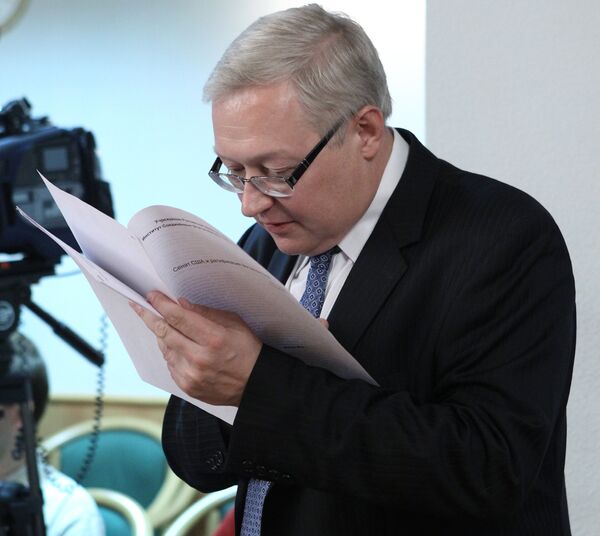Iran's uranium enrichment will affect discussions to supply fuel for a research reactor in Tehran, a Russian deputy foreign minister said on Thursday.
After a ministerial meeting of the six world powers, trying to negotiate with Iran on its controversial nuclear program, Sergei Ryabkov said that the Islamic Republic has already amassed 2.8 metric tons of low-enriched uranium at the facility in Natanz, and continues to produce 20%-enriched uranium.
"This is bound to affect the atmosphere in which issues of fuel supplies for Tehran research reactor are being discussed," he said. "This has a direct link on the [nuclear] fuel swap discussion."
In early February Tehran announced it had begun enriching uranium to 20% in lieu of an agreement on an exchange that would provide it with fuel for a research reactor.
According to the latest IAEA report on Iran's nuclear activities the country currently has 22 kg of 20% enriched uranium, an amount which experts believe is already enough to produce a nuclear bomb.
The Russian diplomat has also called for the soonest meeting of the Vienna Group to discuss the fuel swap deal.
"We are convinced that such a meeting should be held without delay, and a [negotiation] process on a wider range of issues should also be launched simultaneously," he said.
In October 2009 representatives of Russia, the United States, France and the International Atomic Energy Agency suggested that Iran should hand its low-enriched uranium to "a third state" for further enrichment.
Turkey, Brazil and Iran signed an agreement on May 17, dubbed the Tehran Declaration, in which Iran committed itself to giving 1,200 kg of its 3.5%-enriched uranium to Turkey in exchange for 20%-enriched uranium it would receive from Western countries to be used as fuel in the nuclear research reactor near Tehran.
The minister also said that Russian-Iranian military cooperation continue despite Russia's ban on sales of battle tanks, armored vehicles, large-caliber artillery systems, warplanes, military helicopters, ships and missiles to Iran.
"We won't be able to develop military and technical cooperation with Iran in these spheres. There are other directions, however," Ryabkov said.
The decree was signed by Russian President Dmitry Medvedev on Wednesday as part of measures Russia is taking to comply with UN Security Council Resolution 1929 of June 9, 2010.
The ban also affects the 2007 contract to deliver Iran S-300 high-precision air defense missile systems, capable of destroying aircraft at ranges of 150 km (90 miles) and at altitudes of up to 27 km (17 miles).
NEW YORK, September 23 (RIA Novosti)


